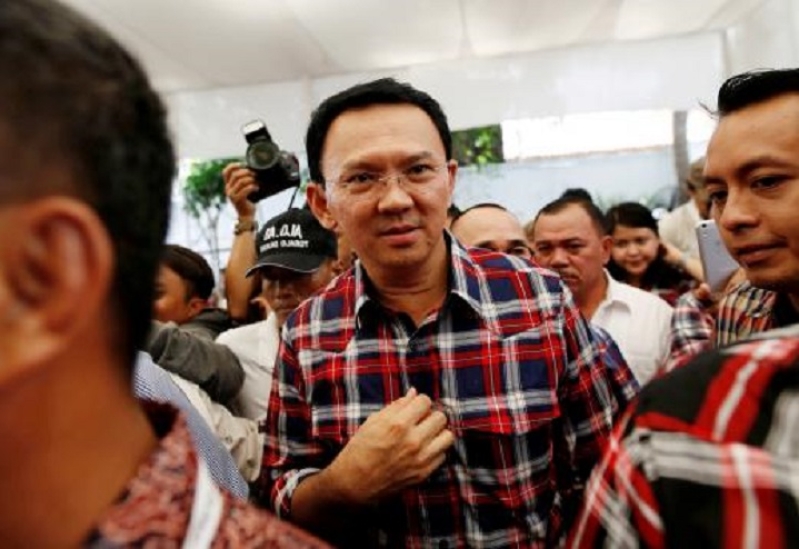
Jakarta’s Christian governor Basuki Tjahaja Purnama, popularly known as Ahok, was emotional and spoke softly as he asked people to pray for him while he goes on trial for blasphemy.
The naturally outspoken governor asked for prayers so that he will have a fair trial and that the issue will be resolved soon. He said he has surrendered the trial's outcome to God, who decides the fate of everyone.
Ahok confessed the case has taken much of his attention, and he wants it to be over so he can focus on more pressing matters.
“I ask you to pray for me so that the legal process is fair and transparent, and I hope I can get past this trouble as soon as possible,” he said, according to The Jakarta Post. “Therefore, I can use my time to provide better services to Jakarta residents.”
The police named Ahok as a suspect in a blasphemy case on Nov. 16. Ahok responded to the National Police summons on Thursday, which officially turned the case over to the Attorney General’s Office.
He is being charged under Article 156 Section A of the Criminal Code. If found guilty of blasphemy, he could be incarcerated for a maximum of 5 years.
Police gave the dossier to the AGO on Friday, and the AGO declared it complete.
Sirra Prayuna, Ahok’s lawyer, praised the AGO for taking less than two weeks to process the dossier.
"Just imagine, the AGO's examination process took less than two weeks. Now, after a short time, the AGO declared the case dossier complete. I think this is a super fast case," Sirra said, according to another report of The Jakarta Post.
"We appreciate the cooperation between the AGO and the police. We will just wait for the further legal process and hope no parties will interfere with this legal process," Sirra said.
Ahok is prohibited from leaving the country while his case is being heard in court. However, he is permitted to continue his campaign.
According to lawyers, he can pursue his candidacy in the gubernatorial race next year. If he wins and the court finds him guilty, he can remain in office until an appeal is no longer possible, The Straits Times reported.
Popular among the youth and the middle class, polls showed Ahok was the leading contender for Jakarta governor, a fact that did not sit well with Islamic hardliners, particularly the Islamic Defenders Front (FPI), who incited the people against him because he is a Christian.
The hardliners told Muslims not to vote for him in the coming election because he is an “infidel,” and it is a sin to vote for an “infidel” as a leader.
Ahok’s popularity and his chances for election has suffered damage when a video of him talking to a group of people and telling them not to be swayed by teachings that forbid them from voting for him was circulated online.
The video was edited to make it look like Ahok was criticizing the Quran instead of his political rivals. Although Ahok has apologized for his statements, conservative and hardline Muslims refused to let go of the issue.
The controversy has launched three protests against the governor that also promoted religious intolerance in Indonesia, which is supposed to uphold religious freedom as mandated by its Constitution. The October protest was attended by 10,000, the November protest drew a crowd of 100,000 and the most recent Dec. 2 protest was joined by at least 200,000 people.
Some businessmen are wondering what direction the country will take as tensions escalate.
"In an overwhelmingly tolerant country ... a small group of hardliners seem to be able to push their agenda, and you have to question what direction the country is headed in," an anonymous foreign business leader in Jakarta said.






